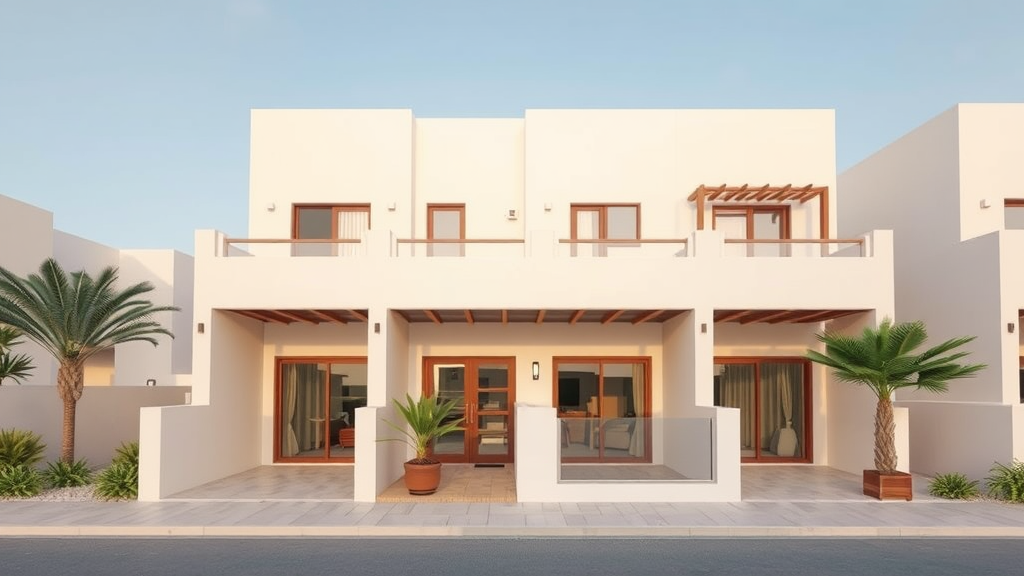Legal considerations for expats investing in multi-family properties in Hurghada
Investing in multi-family properties in Hurghada can be an attractive opportunity for expats looking to tap into Egypt’s growing real estate market. However, understanding the legal landscape is crucial to ensure a smooth investment experience. Here are some vital legal considerations to keep in mind.
Understanding property ownership laws
In Egypt, foreigners can own property, but certain regulations must be followed. Specifically, expats can purchase residential properties, including multi-family buildings, but the ownership is limited to a specific percentage of total residential units in a building. It is essential to familiarize yourself with these laws to avoid any legal hurdles.
Legal framework for investments
Investing in Hurghada’s real estate market requires a clear understanding of local laws. Here are some important points:
- Ownership Structure: Foreigners can own up to 100% of a residential unit, but if you are investing in multi-family properties, ensure your total holdings do not exceed the limit.
- Contractual Agreements: All contracts should be thoroughly reviewed. Seek the help of a legal professional to ensure all terms meet Egyptian standards and protect your interests.
- Inheritance Laws: Familiarize yourself with Egyptian inheritance laws, as they can impact your property if you decide to pass it down.
- Commercial License: If you plan to generate rental income, acquiring a commercial license is essential. This also subjects you to specific tax regulations.
Due diligence before purchasing
Before purchasing a multi-family property, conduct extensive due diligence. This process involves:
- Title Verification: Ensure the title is clear and free from disputes. Consult local authorities or property registries to confirm the legitimacy of ownership.
- Building Inspections: Hire professionals to inspect the physical condition of the property and assess any potential repairs or renovations needed.
- Community Regulations: Investigate any homeowner association rules or zoning laws that could affect your property’s use.
- Financial Records: Review past financial statements if purchasing an income-generating property. This includes rental history and expenses.
Navigating taxes and fees
Understanding the tax landscape is vital. Here are important taxation considerations for expats investing in Hurghada:
- Property Tax: Property taxes apply, and rates may vary based on property value. Be prepared for annual taxes.
- Income Tax: Rental income earned from your property is subject to taxation. Ensure to declare this income in your tax filings.
- Administrative Fees: Be aware of administrative fees associated with property registration and obtaining necessary permits.
Engaging local experts
Hiring local experts can significantly ease the investment process. Consider these professionals:
- Real Estate Agents: Locals agents possess valuable insights into the market and can help you find suitable properties.
- Legal Advisors: Consult with legal professionals experienced in property law to guide you through the complexities of your investment.
- Financial Advisors: A financial expert can assist in understanding the implications of your investment, including tax obligations and return on investment expectations.
Protecting your investment
Once you’ve made your investment, it’s essential to safeguard it:
- Insurance: Obtain comprehensive insurance coverage for your multi-family property to protect against damages and liabilities.
- Regular Maintenance: Keep the property well-maintained to attract tenants and retain value.
- Legal Compliance: Stay updated on changes in local laws to ensure ongoing compliance and avoid penalties.
Investing in multi-family properties in Hurghada can be rewarding, but being informed about legal considerations is key. By understanding ownership laws, engaging local experts, and performing thorough due diligence, you can navigate the investment landscape successfully. Prioritize protecting your investment and staying compliant with local regulations to ensure a fruitful venture in Hurghada’s real estate market.
Navigating property laws and regulations in egypt for foreign investors
Investing in real estate as a foreigner can be an exciting opportunity, especially in a vibrant market like Egypt. However, understanding the property laws and regulations is essential for a successful experience. This is particularly true for multi-family properties, as the legal landscape can be complex.
Understanding ownership rights
In Egypt, foreign investors can own property, but there are specific regulations to navigate. Generally, non-Egyptians can own a maximum of two residential properties, with each not exceeding 4,000 square meters. Commercial properties often have different stipulations. Familiarizing yourself with these limits is crucial before making any investments.
Types of property ownership
Foreign investors can engage in several property ownership types in Egypt:
- Freehold: This grants complete ownership rights to the property, allowing you to sell, rent, or modify it as per your needs.
- Leasehold: This allows you to use the property for a specified period (usually 25 to 99 years) but doesn’t grant full ownership rights.
- Joint Venture: In certain cases, you might partner with an Egyptian national or company. This can simplify the process and provide local market insights.
Navigating local laws
Each governorate in Egypt may have its own local regulations that govern property transactions. Thus, it’s vital to understand the specific laws applicable in Hurghada or wherever you are looking to invest. Engaging a reputable local real estate attorney can provide clarity and assist with compliance.
The importance of proper documentation
When investing in multi-family properties, you must ensure that all documents are in order. Key documents include:
- Title Deeds: Confirm the seller has the legal right to sell the property and that there are no encumbrances.
- Building Permits: Ensure the multi-family property has all relevant permits for construction and habitation.
- Tax Registration: Verify that the property has been registered for taxes to avoid future liabilities.
Tax considerations
As an owner of a multi-family property in Egypt, you will be subject to various taxes. These include property taxes, rental income taxes, and long-term capital gains taxes upon selling your property. Understanding these tax obligations helps in better planning your investment strategy and ensures compliance with local laws.
Real estate contracts
A well-drafted real estate contract is critical in any property transaction. It should include:
- A clear description of the property.
- The purchase price and payment terms.
- Contingencies for potential issues or delays.
- The responsibilities of both parties.
Having a legal expert review your contract can prevent potential disputes and protect your interests.
Investment protection
Protecting your investment should be a paramount concern. This can include obtaining insurance coverage for your property, as well as staying informed on regulatory changes that may impact property ownership. You may also want to consider setting up a local bank account to facilitate financial transactions more smoothly.
Engaging local professionals
Working with local real estate agents, lawyers, and tax advisors familiar with Hurghada’s property market is a wise strategy. They can provide valuable insights and help you avoid common pitfalls. Their expertise can help you understand the nuances of the local market, ensuring your investment is both sound and profitable.
Final considerations
Investing in multi-family properties in Egypt can be rewarding, but it comes with its set of challenges. Understanding the local laws, securing the right documentation, and engaging knowledgeable professionals can significantly help in navigating the property landscape. By doing your due diligence, you can secure a solid investment in one of Egypt’s most engaging real estate markets.
Investing in multi-family properties in Hurghada presents an exciting opportunity for expatriates, but it comes with essential legal considerations that one must navigate diligently. Understanding the intricacies of property laws and regulations in Egypt is crucial for foreign investors. This knowledge not only safeguards your investment but also enhances the potential for a lucrative return.
Before making any commitments, familiarize yourself with local market trends, property taxes, and ownership laws specific to expats. Consulting with a legal expert who specializes in Egyptian real estate can clarify confusing legalities and help you avoid common pitfalls. They can guide you through necessary documentation, contracts, and any required registrations—all vital components in securing your investment.
Furthermore, being aware of your rights as a property owner in Egypt is essential. Ensure that you understand tenant laws, rental agreements, and the obligations that come with being a landlord. This understanding can prevent disputes and foster positive relationships with tenants, making your investment more successful.
By being proactive and informed, you position yourself to navigate the complexities of the Egyptian real estate market effectively. Your due diligence will not only protect your investments but also help you leverage the growing demand for multi-family housing in Hurghada. Ultimately, thorough legal knowledge and professional guidance will empower you to make sound investment decisions, setting the stage for financial success in your new venture. Embrace the opportunity, and take the necessary steps to secure your future in this vibrant market.
19% off – spacious 3 bedroom town houses with gardens in hadaba Hurghada under 150k — ideal for norwegian investors
Last offer – affordable 3 bedroom town houses in almamsha promenade Hurghada under 150k — sea view homes for russian investors












